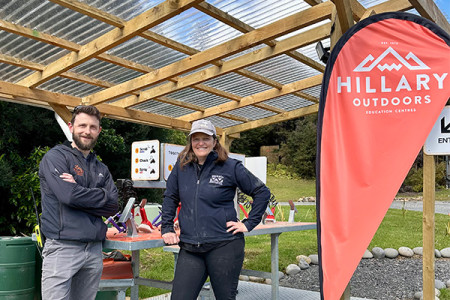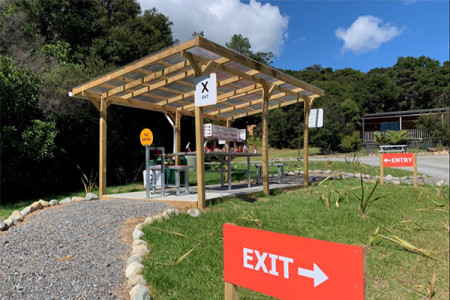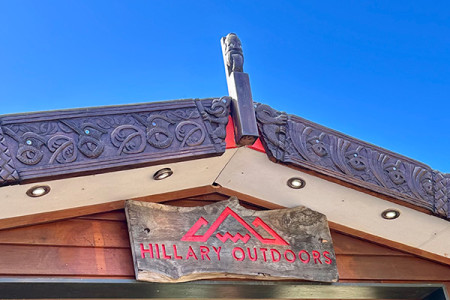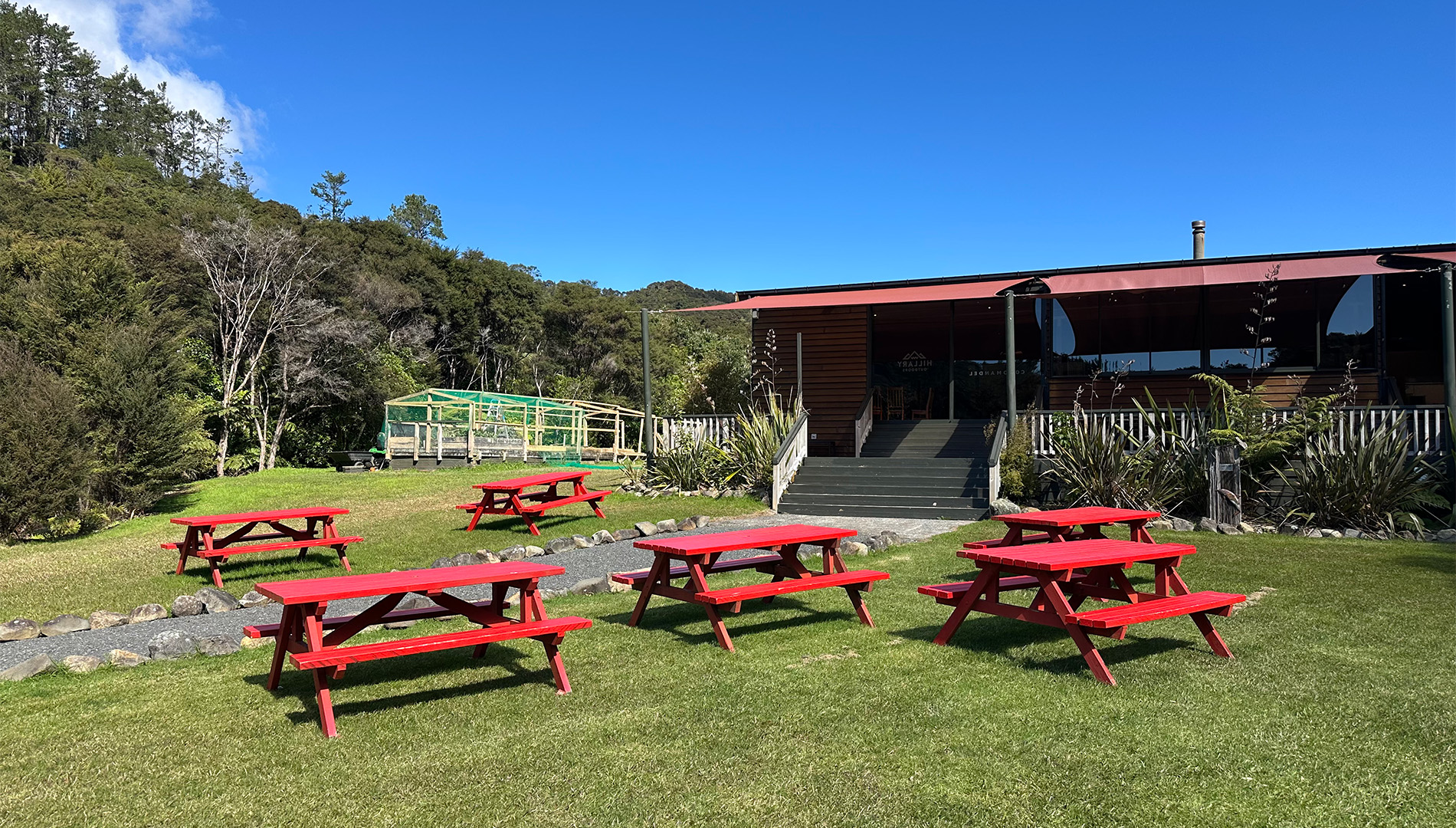“We’ve found that the centre is really committed to good biosecurity practice” -- Amy Lendrum

Hayden Devine and Amy Lendrum at the cleaning station
A new marine and conservation outdoors centre in the Coromandel has state of the art kauri biosecurity protocols and education thanks to support from Waikato Regional Council.
The Hillary Outdoors centre at Port Charles in northern Coromandel was set up in late 2024, with the first group of visitors welcomed in December 2024 for a pilot programme.
Visitors are surrounded by 340 ha of regenerating native bush—including kauri—which is rich with roaming kiwis and other native bird life due to ongoing predator control.
To date, some 1,000 young people have come through the centre and hygiene stations, along with parents, teachers, instructors, and contractors.

The cleaning station at the new centre
The majority of young people are high school students aged between 13-17, with other groups such youth organisations making up the remainder.
Each cohort spends five days at the residential centre, learning through a variety of environmental challenges. Students are immersed in hands-on learning experiences covering various marine and land-based activities and conservation efforts.
“The centre aims to create meaningful outdoor, adventurous experiences for Rangatahi, where they can explore the marine and bush environments while also engaging with conservation,” says Coromandel Centre Manager Hayden Devine.
“In line with the vision of our patron Sir Graeme Dingle’s vision, we believe this learning happens best out in nature, where young people can experience it
directly rather than in a classroom.”

Detail of a Hillary Outdoors centre building
Waikato Regional Council has provided advice and expertise on the centre’s biosecurity protocols which are essential to protecting kauri in the surrounding forest.
This includes two hygiene stations, designed specifically to meet the needs of the centre.
The main station is at the entrance to the centre, while another smaller station is in the centre compound.
“Visitors arrive at the centre and the first thing they do is clean and inspect all of their footwear and equipment at the hygiene station,” says Waikato Regional Council Biosecurity Pathogens and Projects Unit Lead Amy Lendrum.
Amy says it was necessary to come up with a bespoke hygiene station due to the special needs of the centre.
“Hygiene stations are typically designed with individual hikers or small groups in mind, who only need to clean the shoes they are wearing.
“The centre, however, needed a hygiene station that could cater for large groups of children who need to clean multiple pairs of shoes all at the same time.”
Amy says council also provided biosecurity training for centre staff, made available educational materials including its award-winning kauri protection virtual reality sets, and provided kauri artwork to help decorate the centre.
“It’s important that we promote best practice in biosecurity practices because this helps to protect kauri. Contaminated footwear can spread kauri disease which as the name suggests is devastating for our native kauri,” says Amy.
“We’ve found that the centre is really committed to good biosecurity practice.”
Hayden says students really embrace the hygiene stations and the chance to do their part to protect kauri.
“Our fantastic bookings team ensures teachers introduce the importance of it before students arrive, so they already understand the ‘why’ of the hygiene stations,” says Hayden.
The young people also really take to the kauri virtual reality experience: “It takes what could be a heavy subject and makes it fun and inspiring — it’s a powerful way to connect young people with conservation.”
Hayden says the specialist biosecurity support provided by Waikato Regional Council has been outstanding.
“We are very proud of our kauri trees, and the council’s help enables us to both protect them and educate young people about their significance.
“The donated artwork has also been a wonderful addition — it really brings warmth and vibrancy to what were once empty walls.”
Hayden says that he loves his role: “Having the chance to set up a centre from the ground up has been a once-in-a-lifetime opportunity. Creating lasting experiences for young people and knowing the impact that will have is hugely rewarding.
“I’m fortunate to have a dedicated team alongside me and to have been welcomed into a supportive local community.”



